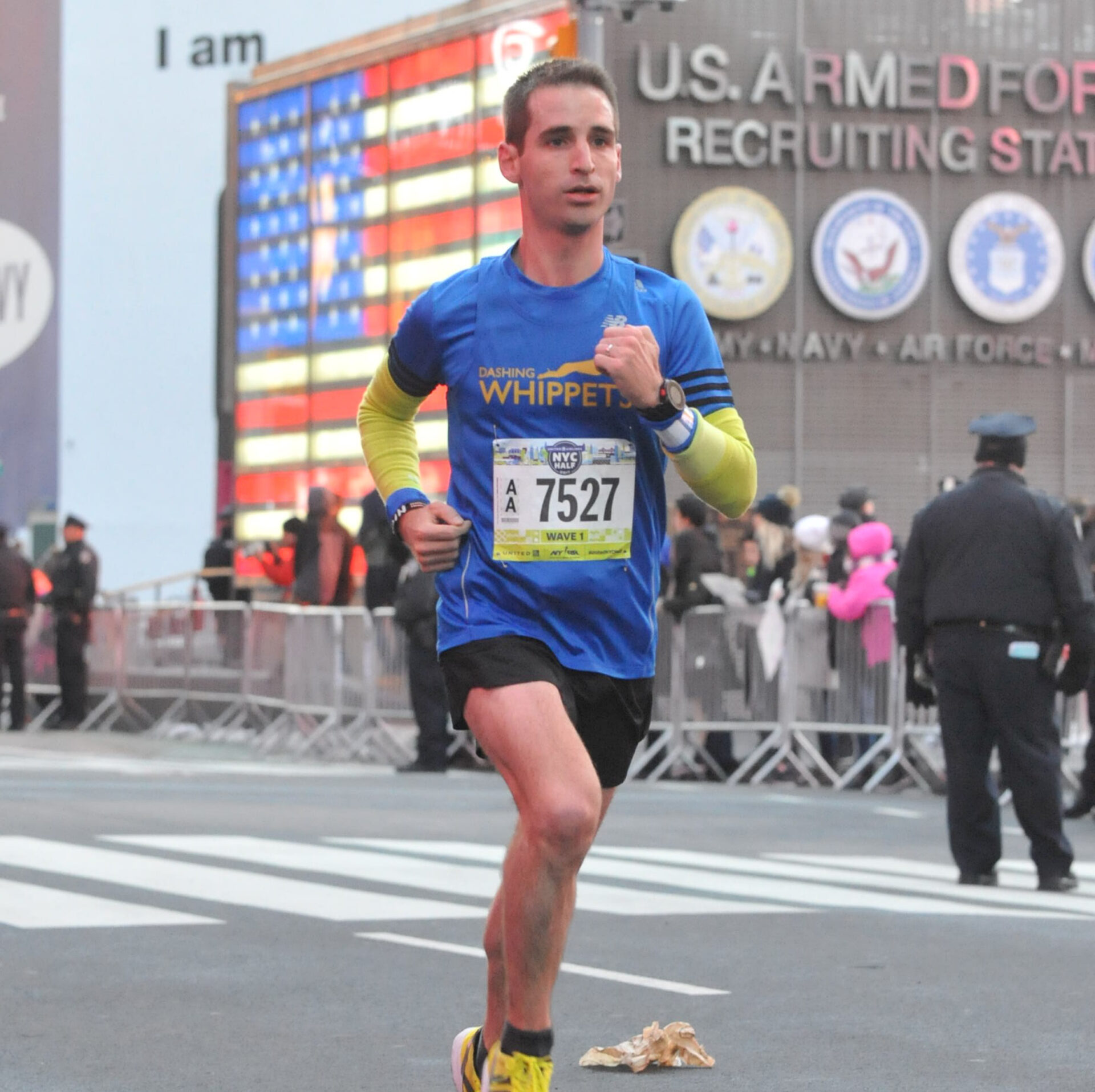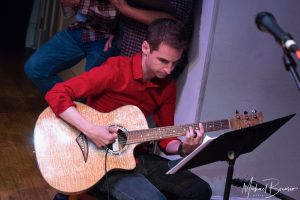I started training seriously at age 27. Throughout high school and college, athletics never entered my mind because I played and practiced music so much. If I didn’t play at a club, I worked on composing, transcribing or rehearsing with other ensembles. Since running consistently for four years, I’ve been able to tie in the same principles as my music studies to my improvement with running. Applying these principles allows me to improve, and I’m confident this will help you in your daily practice as well.
1): Focus on proper technique: Playing the guitar requires one to develop independence with each finger. A light touch helps as well. Dexterity is the key in not only being able to sound good, but to also complete songs without having to stop due to tired hands. Endurance running requires one to have a good amount of aerobic fitness to run for a set period of time.
The key is to recognize and work on weak areas. If you have less contact with the ground, running will become less of a struggle. Strong core muscles will help you stay injury free. If you have limited range of motion, try adding yoga to your routine. Just like playing an instrument, remember to breathe. Moreover, don’t do too much before your technique is fully developed.
2): Work on concentration: Most mistakes occur from lack of concentration. It’s harder in today’s social climate to retain focus more than any other point in history. Although smartphones can be useful, addictions have thrown our attention spans out the window. We worry so much about what the other person is doing that we forget about our own progress. If I sight-read a piece of music and don’t look ahead, I’ll probably miss a note. If I focus on the note I missed, I’ll miss the next note.
At some point I have to decide what to ignore and what to focus on if I’m going to make it through a song. When running gets tough, I need to focus on how I can maintain and not blow up during a race. Concentration is a skill that we have to apply to our daily life in order to thrive.
3): Let the ego go: It’s okay for serious runners to run 9:00-10:00 per mile sometimes. Many world-class Kenyan athletes run this slow at times to recover from hard training. It’s also okay to take a day off, if needed. When racing, never complain about a poor performance, especially if it’s a personal best (a big pet peeve of mine, even when pros do it). Keep in mind that your worst time might be someone’s dream time. One key to making an impact in life involves relating with other people. I respect athletes like Meb Keflezighi because although I’ve never met him, I feel like I can approach him.
I learned the importance of relating with people through music. In more “serious” art forms, often times musicians miss the entire point of playing music. We focus so much on technique, repertoire or theory that it becomes tunnel vision. At the end of the day it’s not a contest to learn 300 jazz standards. It’s not about superimposing chords or playing every rhythm in the book to affirm to the audience that we are qualified to play. It’s about empathy and freedom of expression. Moreover, don’t compare yourself to others. In music it’s pointless to complete. Although athletes compete, how one arrives to a race in peak form might differ from someone else. The goal is the journey and not the final destination.
4): Timing is everything: Developing a voice and an understanding of how music works takes a long time. Musicians develop a working knowledge of fundamental theory such as keys, scales and chords to play music. At an advanced level, accomplished musicians can trace a complicated passage back to its basic form. At the highest level of performance, athletes can trace back workouts that allow them to reach peak performance. This knowledge is important in taking gradual steps to achieving a task. If we take on too much we fall down in defeat. If we do too little, it becomes boring. Instead, our chances of succeeding grow much higher if we build little by little and understand what works best for us.
Improvement takes time, especially if you’ve been at it for a bit (the principle of diminishing returns). Yes. it’s easier to improve in the beginning, of course. The issue lies when we become complacent and fail to change our routines to challenge our bodies. In order to improve we must balance hard work with rest. In the world of distance running, many programs use periodization to arrive at a specific race. Many athletes gradually build their training from the ground up, peak, then taper for a goal race.
5): Don’t over-rehearse: With the case of serious running, less is usually more. As a musician I’ve had my fair share of rehearsing songs to the point of autopilot. Once I actually read a magazine while fretting notes during a performance. Whereas the problem with over-rehearsing causes complacency and the music sounding stiff, overtraining causes burnout. The serious runner usually has no problem with work load. The hard part for a friend or coach is explaining the importance of a day off. Moreover, balance is key for being happy and performing well.
6): Run in the moment: I developed into a Type B personality with music because the style and culture of what I played reflected more of a laid back approach. I took this trait with me when I began implementing specific running workouts. Many Western runners seem to have Type A personalities. Mileage counting for mileage sake, obsessions with race times and forced planning can ironically lead to performing poorly in races.
In order to succeed we must have attainable goals and practice consistently, however we also must allow ourselves to be in the moment. Improvisation and freedom attracted me to studying jazz. A lot can happen during a race. How we react to different situations will determine the outcome of an event. All my personal bests come from not being aware of time. All of my best material usually comes from improvising on the spot. As Charlie Parker said, “Master your instrument, master the music and then forgot all that and just play.” When I complete a training buildup, my goal on race day is to just play.

